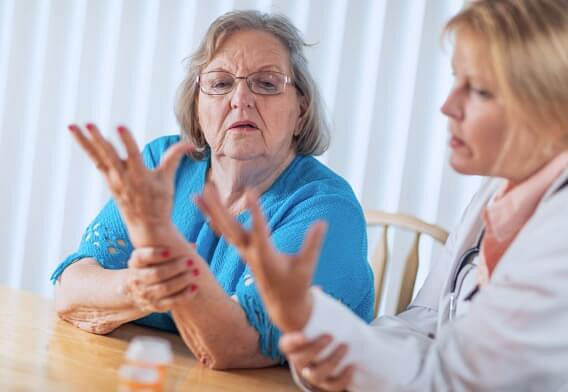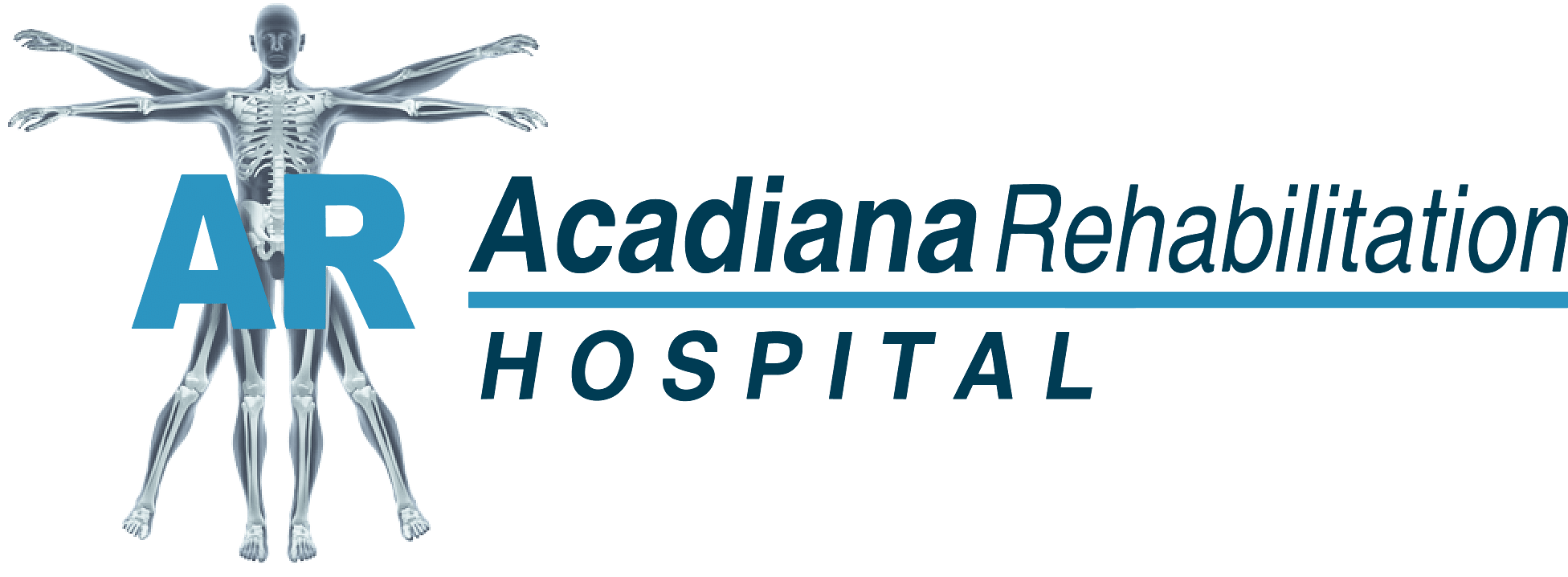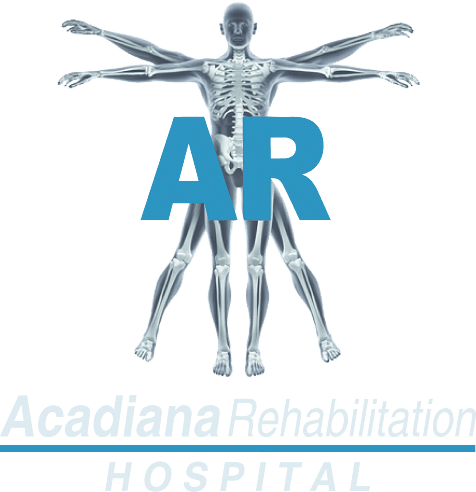Visiting Hours:
Monday - Friday: 4PM-8PM
Saturday: 12PM-8PM
Sunday: 8AM-8PM
Adapting to Life After a Traumatic Brain Injury
A traumatic brain injury (TBI) can change a person’s life in an instant. Whether caused by a fall, a vehicle accident, or another sudden impact, a TBI often brings lasting effects that reach far beyond the moment of injury. It can affect memory, movement, communication, emotions, and independence, but with the right support, healing is possible. At Acadiana Rehabilitation Hospital, we walk alongside patients and their families during recovery, offering expert care and compassionate guidance through every phase of the journey.

Understanding the Effects of a Traumatic Brain Injury
The impact of a TBI varies from person to person. Some people experience mild symptoms, while others face serious and long-term challenges. Physical symptoms may include headaches, dizziness, loss of coordination, fatigue, or seizures. Cognitive effects can range from short-term memory loss and difficulty focusing to slower problem-solving skills. Emotionally, a TBI may bring on mood swings, depression, irritability, or anxiety. Communication issues may develop as well, making it harder to find words, speak clearly, or understand others.
Even when a TBI is classified as “mild,” the emotional and functional effects can disrupt a person’s daily life. That’s why long-term recovery focuses not only on healing the brain but also on helping individuals adapt, regain independence, and reconnect with meaningful activities.
The Importance of Comprehensive Rehabilitation
Rehabilitation provides the foundation for recovery after a TBI. At Acadiana Rehabilitation Hospital, we take a team-based approach to care. Our medical staff, therapists, and support professionals work together to build a recovery plan tailored to each individual’s needs. We address physical, cognitive, emotional, and behavioral challenges in an environment that promotes progress and celebrates small victories along the way.
Physical Therapy After a TBI
Many patients with a TBI experience changes in mobility, strength, and balance. Physical therapy helps retrain the body, reduce the risk of falls, and restore as much physical function as possible. Treatment may include stretching, strengthening, gait training, and endurance exercises. Therapists work closely with patients to ensure that every movement is purposeful and safe. By rebuilding physical strength and stability, individuals can begin to feel more confident in their bodies again.
Occupational Therapy for Daily Independence
Occupational therapy focuses on everyday tasks such as grooming, cooking, dressing, and managing the home. Therapists help patients find ways to complete these activities even if their abilities have changed. This may involve energy-saving techniques, assistive devices, or new routines that make life more manageable. The goal is to help each person regain a sense of control over their daily life and reduce the need for assistance from others.
Rebuilding Communication and Cognitive Skills
Speech-language pathologists play a vital role in helping TBI patients regain language and cognitive function. This includes working on speech clarity, language processing, reading and writing, and even social communication. Therapy also focuses on memory, attention, and problem-solving, often using exercises and tools designed to build brain function and support everyday decision-making. Patients may also learn compensatory strategies like using calendars, reminder apps, or checklists to stay organized and focused.
Addressing Emotional and Behavioral Changes
A TBI can affect how someone feels, reacts, and behaves. Some people may become easily frustrated, withdrawn, or overwhelmed by simple tasks. Others may experience depression, anxiety, or mood swings. These changes are common and understandable. At Acadiana Rehabilitation Hospital, we provide emotional and behavioral support to help patients understand and manage what they’re experiencing. Individual counseling, support groups, and stress-reduction techniques help people process their feelings and build emotional resilience.
Creating a Safer, More Supportive Daily Environment
As patients begin to adjust to life after a TBI, small changes in the home and daily routine can make a big difference. Simple tools like labels, written schedules, medication reminders, and organized spaces reduce confusion and frustration. Adaptive equipment such as grab bars, non-slip mats, and improved lighting can help prevent accidents. Breaking tasks into smaller steps, pacing activities, and planning rest breaks can help manage fatigue and reduce stress.
Reconnecting with Family, Friends, and Community
Relationships often change after a TBI, which can be one of the hardest parts of recovery. Some individuals may feel isolated or misunderstood, while loved ones may struggle to adjust to new personality traits or communication challenges. We encourage families to participate in therapy sessions and learn more about how to support recovery at home. Open communication, patience, and education are essential for rebuilding trust and connection.
Support groups can also provide a valuable space for patients and caregivers to share experiences, ask questions, and learn from others who are on similar journeys.
Returning to Work, School, or Leisure Activities
Regaining a sense of purpose is an important part of long-term recovery. Whether someone is hoping to return to work, school, or a favorite hobby, we help make that transition as smooth as possible. Vocational rehabilitation services can help patients explore new job options, adjust to workplace demands, or build new skills. Students may benefit from academic accommodations or tutoring support. Hobbies and leisure activities can be reintroduced gradually, giving patients a way to experience joy and creativity again.
Supporting Long-Term Health and Wellness
Recovery from a traumatic brain injury doesn’t stop when someone leaves the hospital. It continues with good habits, regular check-ins, and ongoing support. Long-term wellness involves getting enough sleep, eating well, staying active, and reducing stress. Some individuals may continue outpatient therapy or join community-based programs that promote brain health and social engagement. Staying connected to medical professionals also ensures that any new symptoms or challenges are addressed early.
Caring for the Caregivers
Family members and caregivers play an essential role in the recovery process, but they need support, too. It’s easy for caregivers to become overwhelmed or exhausted. We encourage families to take care of their own health, reach out for help, and use resources like respite care and support groups. Knowing when to ask for assistance is a necessary part of sustainable caregiving.
Measuring Progress and Setting Goals
One of the most helpful ways to stay motivated during recovery is by setting small, realistic goals. Whether it’s walking independently, preparing a meal, or remembering a new phone number, each goal achieved is a step toward a fuller life. We work with patients to set goals that are specific, measurable, and meaningful. Progress is tracked and celebrated, with therapy adjusted as needed to reflect current abilities and new challenges.
How Acadiana Rehabilitation Hospital Can Help
At Acadiana Rehabilitation Hospital, we provide specialized inpatient and outpatient care for individuals recovering from traumatic brain injuries. Our facilities are designed to support every stage of recovery, with a dedicated team ready to guide patients through the physical, emotional, and practical aspects of healing. From the first assessment to discharge planning and follow-up care, we focus on empowering each patient to live as independently and fully as possible.
We offer:
- Customized treatment plans
- State-of-the-art rehabilitation equipment
- Multidisciplinary therapy teams
- Family and caregiver education
- Ongoing support for reintegration into home, work, and community life
Every recovery journey is different, but no one has to walk it alone. We’re here to support our patients and their families with compassion, expertise, and the belief that progress is always possible.
Start Your Recovery Today
If you or a loved one is adjusting to life after a traumatic brain injury, reach out to Acadiana Rehabilitation Hospital. Our team is ready to help you build a personalized plan for recovery and provide the care, encouragement, and tools needed to move forward with strength and hope.

